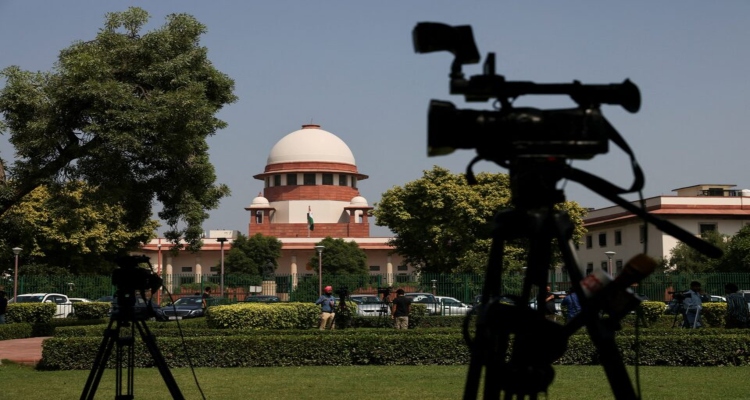
The Supreme Court on Monday issued a notice to the Union Government on a petition demanding an independent and neutral mechanism for appointing the Comptroller and Auditor General of India (CAG).
PIL Challenges Government-Controlled Appointment
The Centre for Public Interest Litigation filed the PIL, urging that CAG appointments be made by an independent committee comprising the Prime Minister, Leader of Opposition, and Chief Justice of India.
The petitioner argued that the current system, where the Union Government solely selects the CAG, compromises the institution’s independence.
“In recent times, the CAG has lost its independence,” stated Advocate Prashant Bhushan, representing CPIL.
A bench of Justices Surya Kant and NK Singh questioned whether there had been any recent deviations that cast doubt on the CAG’s independence. Bhushan responded that the number of CAG reports had declined, staff strength was reducing, and audits in BJP-ruled states were being stalled—citing Maharashtra as an example.
Judicial Scrutiny Over Appointment Process
Bhushan highlighted that the Supreme Court had previously intervened in the appointments of the CBI Director and the Chief Election Commissioner to ensure institutional independence, and a similar safeguard was necessary for the CAG.
However, Justice Kant responded, “We have to trust our institutions,” pointing out that Article 148 of the Constitution provides the CAG with protections similar to those of a Supreme Court judge regarding removal.
Bhushan countered that mere protection from removal was insufficient, referencing the Anoop Baranwal case, where the Court ruled that similar protections for the Election Commission did not fully ensure its independence.
Justice Kant questioned whether the judiciary could override the Constitutional provision that grants the President unrestrained power to appoint the CAG.
SC Issues Notice
After deliberation, the bench issued a notice to the Centre, tagging the case with another similar petition. Justice Kant suggested that the issue should be heard by a 3-judge bench, while Bhushan indicated that even a Constitution Bench could examine the matter.
The case now awaits the Centre’s response, setting the stage for a broader debate on institutional autonomy and the separation of powers.
Read More: Supreme Court, Delhi High Court, States High Court, International




